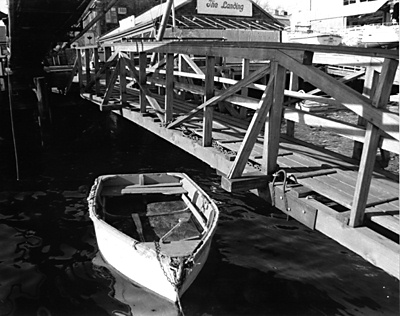All Nonfiction
- Bullying
- Books
- Academic
- Author Interviews
- Celebrity interviews
- College Articles
- College Essays
- Educator of the Year
- Heroes
- Interviews
- Memoir
- Personal Experience
- Sports
- Travel & Culture
All Opinions
- Bullying
- Current Events / Politics
- Discrimination
- Drugs / Alcohol / Smoking
- Entertainment / Celebrities
- Environment
- Love / Relationships
- Movies / Music / TV
- Pop Culture / Trends
- School / College
- Social Issues / Civics
- Spirituality / Religion
- Sports / Hobbies
All Hot Topics
- Bullying
- Community Service
- Environment
- Health
- Letters to the Editor
- Pride & Prejudice
- What Matters
- Back
Summer Guide
- Program Links
- Program Reviews
- Back
College Guide
- College Links
- College Reviews
- College Essays
- College Articles
- Back
More Refugees, Less Burdens
As Mother Teresa once said, “We can do no great things. Only small things with great love.” We cannot stop conflicts in every corner of the world. We cannot stop wars which force people to flee from their homes in every corner of the world, despite how strong and powerful we can be. However, with great love, we can offer shelter to those people.
According to UNHCR (United Nations High Commissioner for Refugees - a UN programme offering protection and support to refugees): “An unprecedented 65.6 million people around the world have been forced from home. Among them are nearly 22.5 million refugees, over half of whom are under the age of 18. That is 20 people who are forcibly displaced every minute as a result of conflict or persecution” (“Figures At A Glance”). This is nearly twice as much compared to 2007 (ten years ago) when there were 11,183,698 refugees. With such crisis at our hands, our actions matter more than ever before. Nonetheless, developed countries are debating over who gets less of this ‘burden’. But are they really only a ‘burden’?
Many studies indicate that host countries can benefit from refugees socially, economically and culturally. A recent study conducted by UC Davis with the United Nations World Food Program showed that refugees receiving aid (especially cash) gave their host country’s economy a considerable boost. In two cash-aid camps, each adult refugee received annually $120 and $126. Researchers found that those refugees increased the annual real income in the local area by $204 and $253. Furthermore, the demand and spending generated locally by the refugees also raised the overall incomes and spending levels for the host country (Rwanda). Each refugee in the two cash-aid camps improved annual trade between the local economy and the rest of Rwanda by $49 and $55. Overall, the Congolese refugees in Rwanda generated significantly more income than the cash-aid they received. J. Edward Taylor, the study's lead author and a UC Davis professor of agricultural and resource economics stated that "Our findings indicate that when refugees in these camps are given the opportunity to interact with the economy around them, they can create positive income spillovers for the host-country households and businesses" (“Refugees Can Offer Economic Boost to Their Host Countries”).
Refugees are people just like us, who unfortunately have had to go through many hardships and deprivation. UNHCR clearly declares that “A refugee has the right to safe asylum” (United Nations High Commissioner for Refugees). However, countries like the UK, having the fifth largest economy, resettled only 5706 refugees, whilst developing countries like Jordan and Lebanon took in 1.7 million. Even though they are not as powerful, they opened their doors to them because they appreciate the human life and they acknowledge their struggles and sufferings. Moreover, they are positive that refugees will bring many assets, skills and knowledge. For example, in 1933 Albert Einstein was a hopeless refugee who was able to resettle safely in the US. The world might have not been able to benefit of his contributions to science and society if it wasn’t for an open door to refugees.
Obviously, there can be some concerns and issues faced by host countries and one of them is terrorism. However, refugees go under intense investigation where they are registered (including biometrics), referred based on vulnerability, screened, interviewed and have an additional review if concerns are raised. When the system works properly and when a welcoming relationship is built between the hosting community and the refugees, it is unlikely for them to radicalize. As aforementioned, if they are given a chance to a restart, there is a greater positive impact than a negative one within the communities they are accepted.
Unlike Einstein, many refugees remain in limbo without opportunities to resettle safely. They need our help and support just as one famous physicist did in 1933. Just as little Aylan Kurdi desperately needed the help he never got, costing him his life, drowning in the Mediterranean sea, on September 2nd 2015. He was only 3 years old. Therefore, it is really important to open up our hearts, our homes with great love in order to make a difference and make the world a better place.
Citations:
"Figures At A Glance." UNHCR, 2017. Web. 19 June 2017.
Ijeoma, Ekene. “The Refugee Project.” The Refugee Project, The Refugee Project.
Türk, Volker. "United Nations Security Council Counter-Terrorism Committee." Un.org.
UNHCR, 2017. Web. 5 Apr. 2017.
“Refugees Can Offer Economic Boost to Their Host Countries.” Phys.org - News and Articles on Science and Technology, Phys.org, 20 June 2016
United Nations High Commissioner for Refugees. "Protecting Refugees: Questions and Answers." UNHCR. UNHCR, 01 Feb. 2002. Web. 04 Dec. 2017.

Similar Articles
JOIN THE DISCUSSION
This article has 0 comments.
